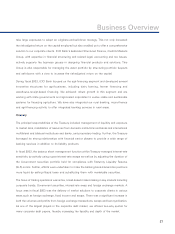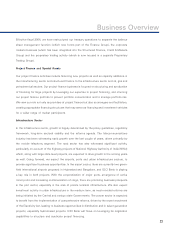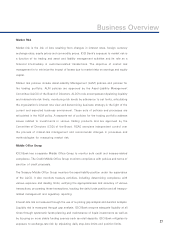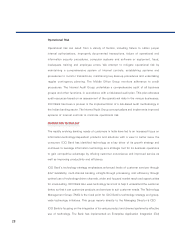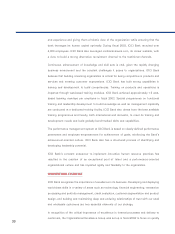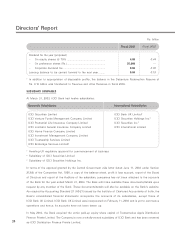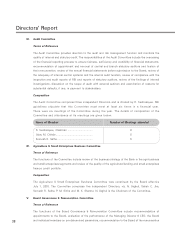ICICI Bank 2003 Annual Report Download - page 30
Download and view the complete annual report
Please find page 30 of the 2003 ICICI Bank annual report below. You can navigate through the pages in the report by either clicking on the pages listed below, or by using the keyword search tool below to find specific information within the annual report.
28
Operational Risk
Operational risk can result from a variety of factors, including failure to obtain proper
internal authorizations, improperly documented transactions, failure of operational and
information security procedures, computer systems and software or equipment, fraud,
inadequate training and employee errors. We attempt to mitigate operational risk by
maintaining a comprehensive system of internal controls, establishing systems and
procedures to monitor transactions, maintaining key back-up procedures and undertaking
regular contingency planning. The Middle Office Group monitors adherence to credit
procedures. The Internal Audit Group undertakes a comprehensive audit of all business
groups and other functions, in accordance with a risk-based audit plan. This plan allocates
audit resources based on an assessment of the operational risks in the various businesses.
ICICI Bank has been a pioneer in the implementation of a risk-based audit methodology in
the Indian banking sector. The Internal Audit Group conceptualizes and implements improved
systems of internal controls to minimize operational risk.
INFORMATION TECHNOLOGY
The rapidly evolving banking needs of customers in India have led to an increased focus on
information-technology-dependent products and solutions with a view to better serve the
consumer. ICICI Bank has identified technology as a key driver of its growth strategy and
continues to leverage information technology as a strategic tool for its business operations
to gain competitive advantage by offering customer convenience and improved service as
well as improving productivity and efficiency.
ICICI Bank’s technology strategy emphasises enhanced levels of customer services through
24x7 availability, multi-channel banking, straight-through processing, cost efficiency through
optimal use of technology-driven channels, wider and focused market reach and opportunities
for cross-selling. ICICI Bank also uses technology as a tool to help it understand the customer
better, so that it can customize products and services to suit customer needs. The Technology
Management Group (TMG) is the focal point for ICICI Bank’s technology strategy and group-
wide technology initiatives. This group reports directly to the Managing Director & CEO.
ICICI Bank is focusing on the integration of its various product and channel systems by effective
use of technology. The Bank has implemented an Enterprise Application Integration (EAI)





